Advent 2025 - Semester in Review
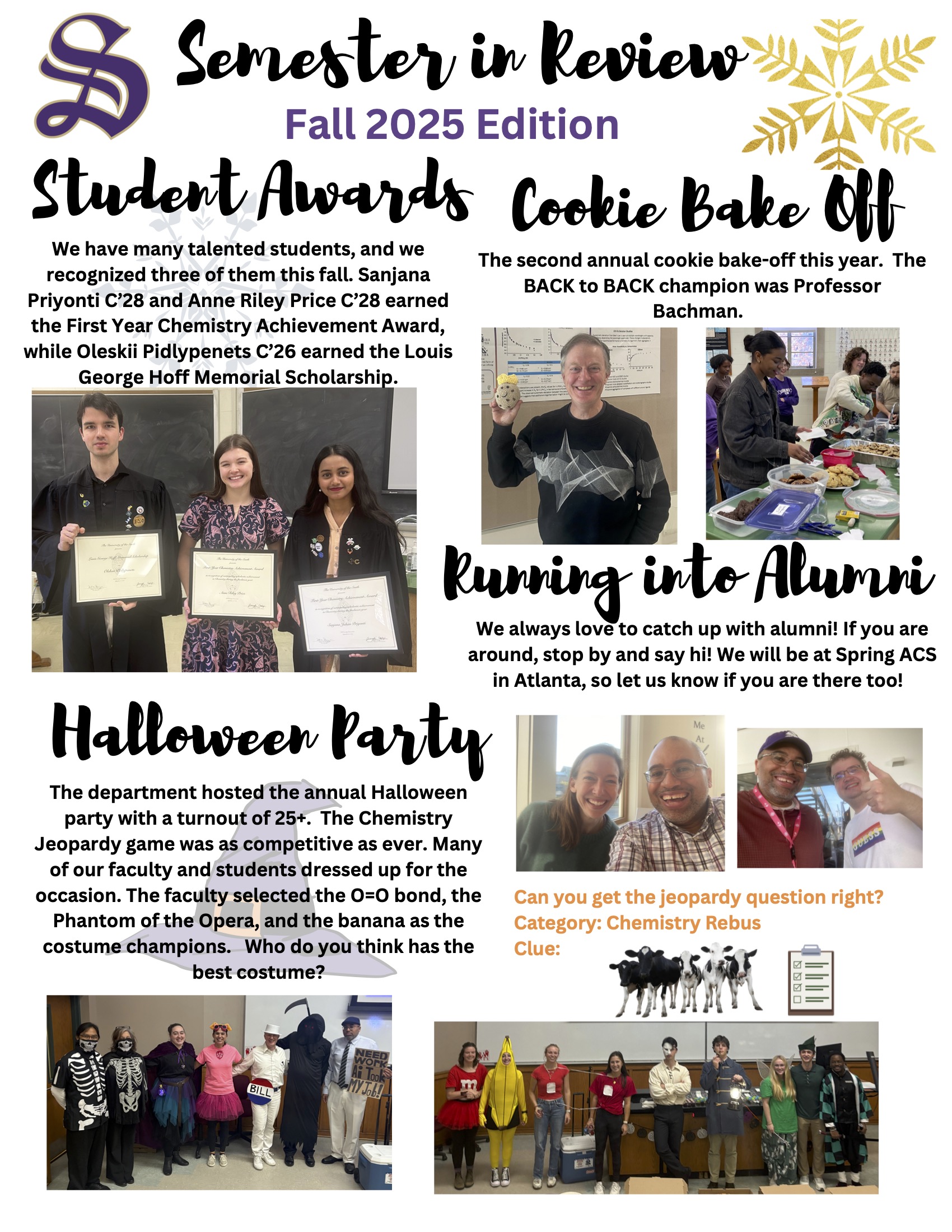
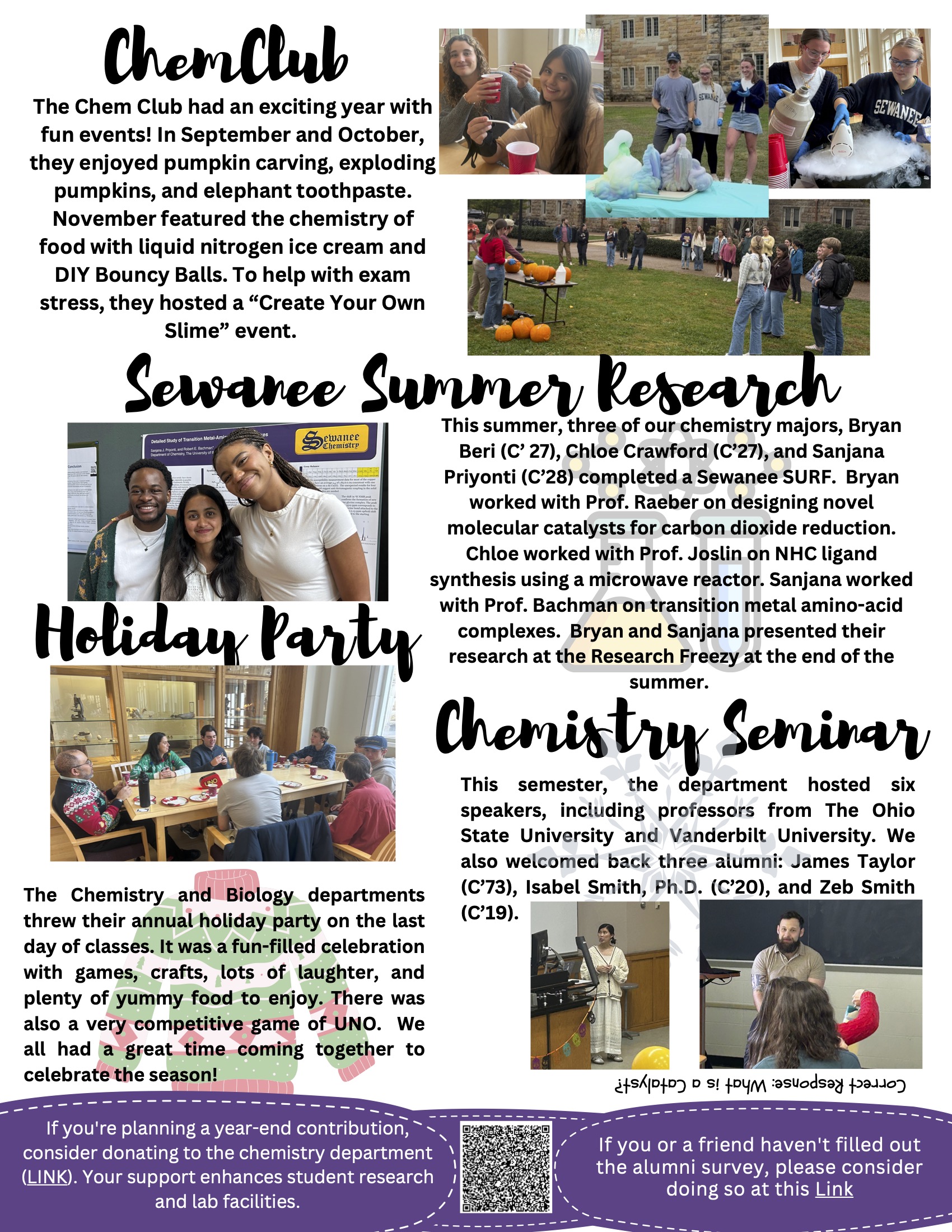
Advent 2025 - Semester in Review


Easter 2025 - Semester in Review
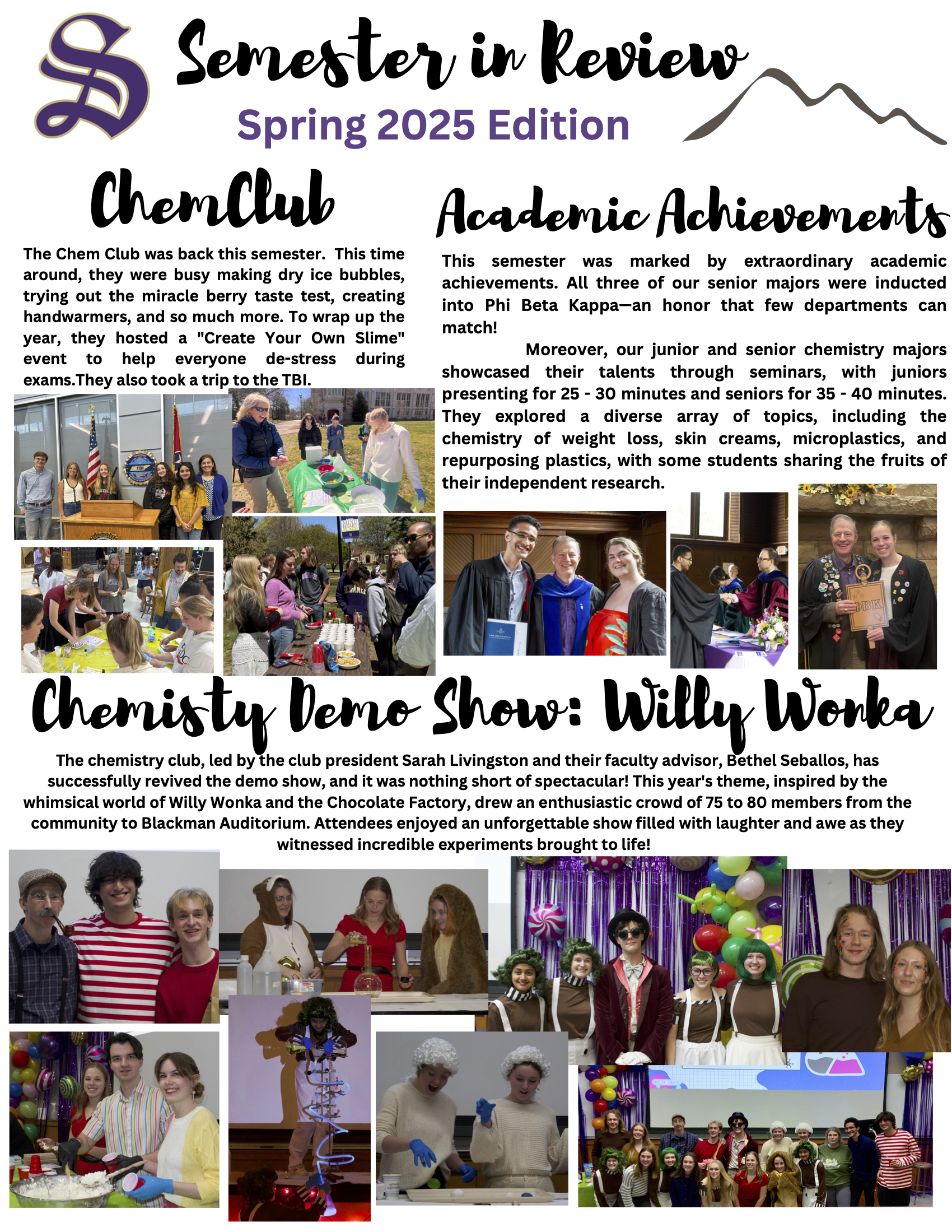
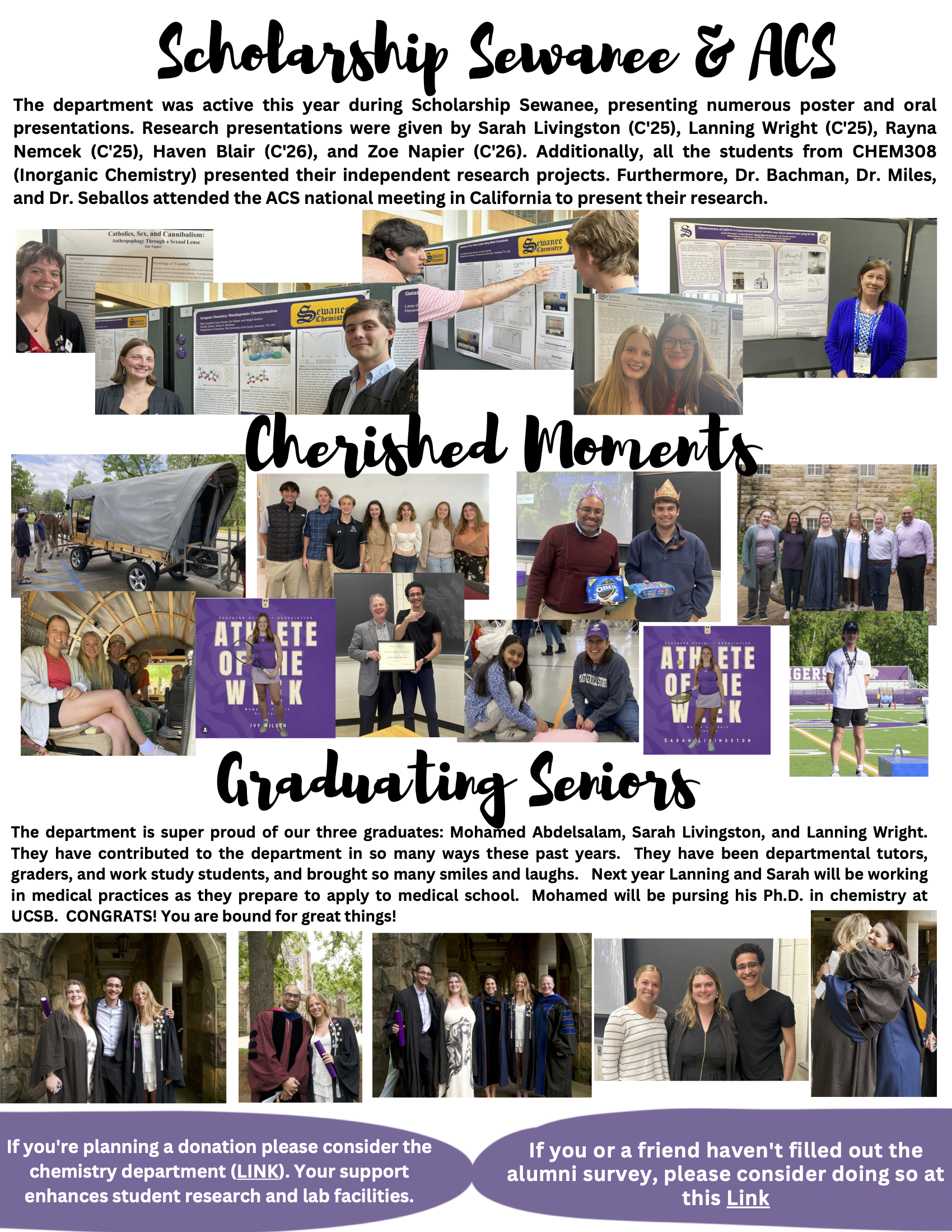
Advent 2024 - Semester in Review


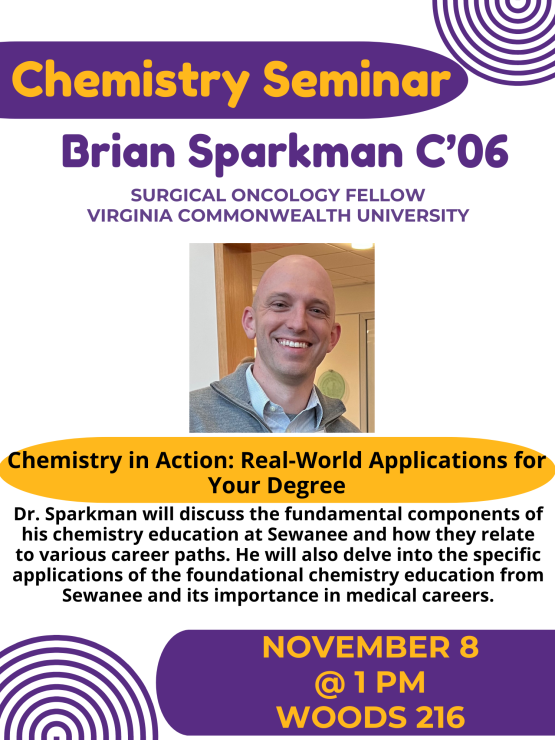
Dr. Sparkman will discuss the fundamental components of his chemistry education at Sewanee and how they relate to various career paths. He will also delve into the specific application of the foundational chemistry education from Sewanee and its importance in medical Careers.
November 8th @ 1PM in Woods Lab 216
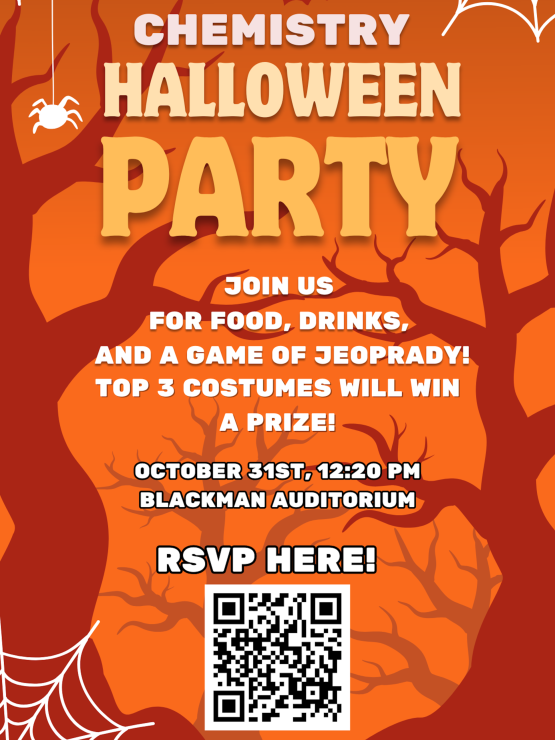
Join us for food, drinks, and a game of jeoprady! Top 3 costumes will win a prize!
October 31st @12:20pm in Blackman Auditorium
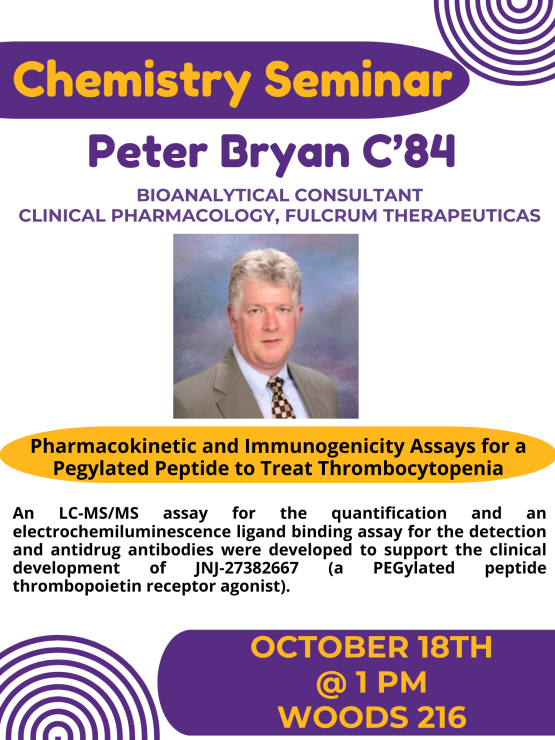
Alum, Peter Bryan, is joining us Friday the 18th at 1pm in Woods 216 to speak about using pharmacokinetic and immunogenicity assays to treat thrombocytopenia and to give insight into the field of bioanalytical consulting, clinical pharmacology, and fulcrum therapeutics.
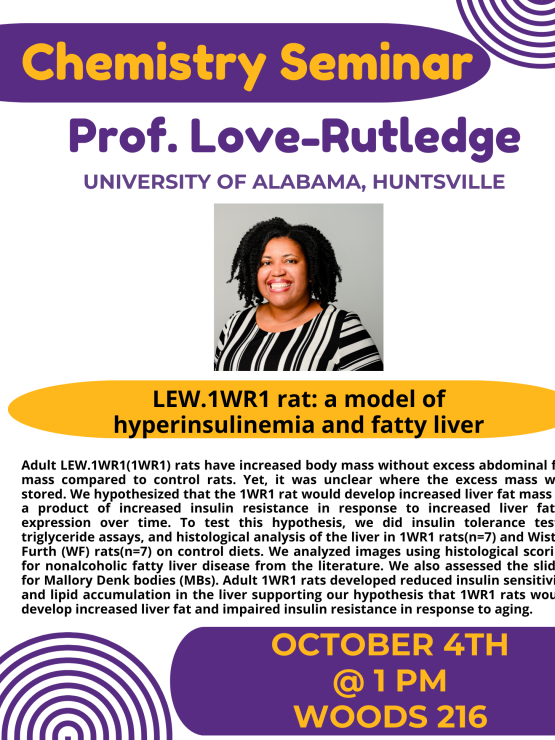
Professor Love-Rutledge will give a talk about her work with rats on October 4th at 1 p.m. in Woods 216.
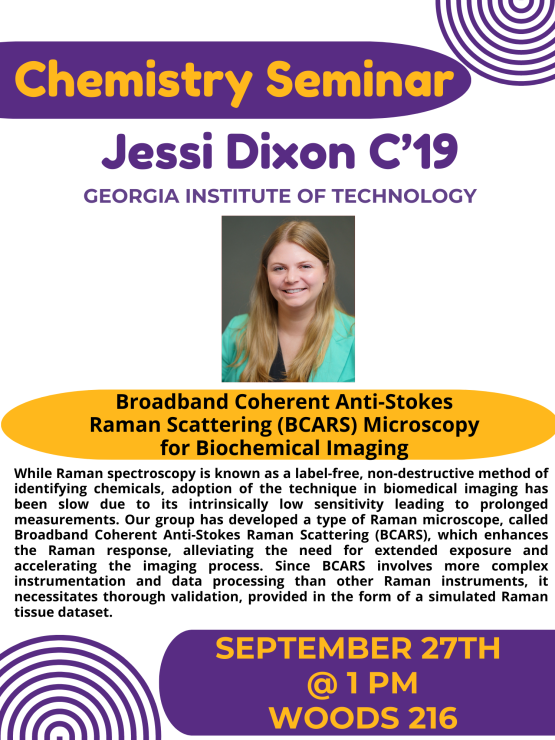
Alum, Jesse Dixon, speaks about using broadband coherent anti-stokes raman scattering (BCARS) microscopy techniques for biochemical imaging.
September 27th @1PM in Woods Lab 216
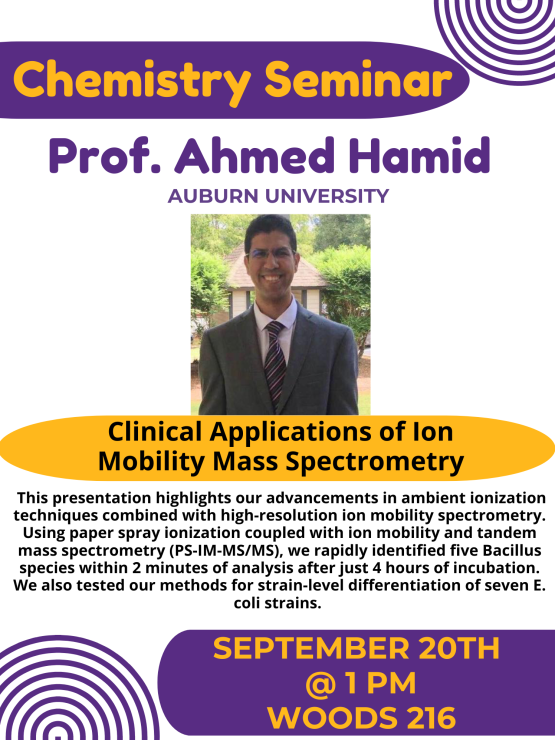
Learn more about the clinical applications of ion mobility mass spectrometry. This presentation highlights our advancements in the ambient ionization techniques combines with high-resolution ion mobility spectrometry.
September 20th @ 1PM in Woods Lab 216
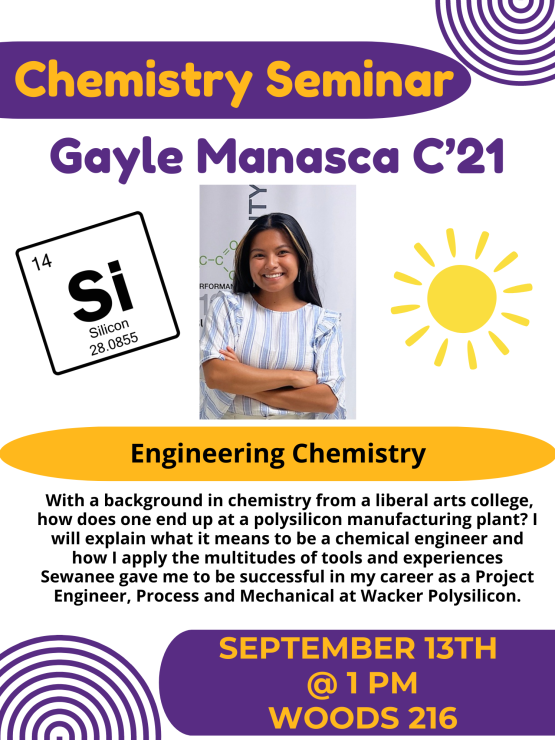
With a background in chemistry from a liberal arts college, how does one end up at a polysilicon manufacturing plant? I will explain what it means to be a chemical engineer and how i apply the multitudes of tools and experiences Sewanee gave me to be successful in my career as a Project Engineer, Process and Mechanical at Wacker Polysilicon.
September 13th @ 1p in Woods Lab 216
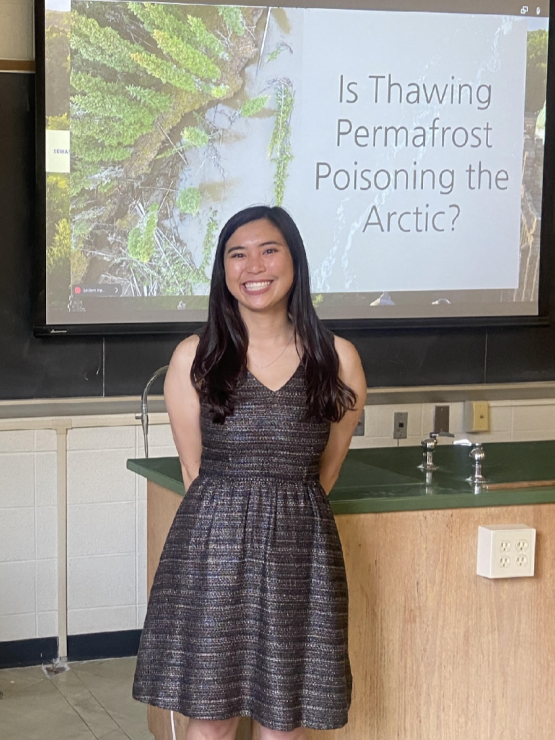
The chemistry department is proud of alumna Isabel Smith C’2020 who just published her first research paper in the Environmental Research Letters (Link). Isabel is working towards her PhD in Earth Sciences at the University of Southern California. She presented her current work to the Sewanee Chemistry Department last Fall (2023).
First-Year Chemistry Achievement Award—in recognition of outstanding scholastic achievement in Chemistry during the first year.
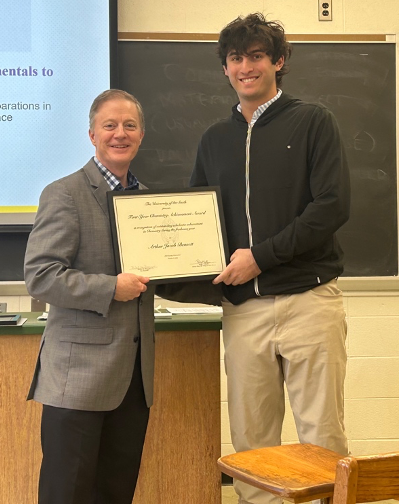
Arthur Jacob Bennett of Tennessee
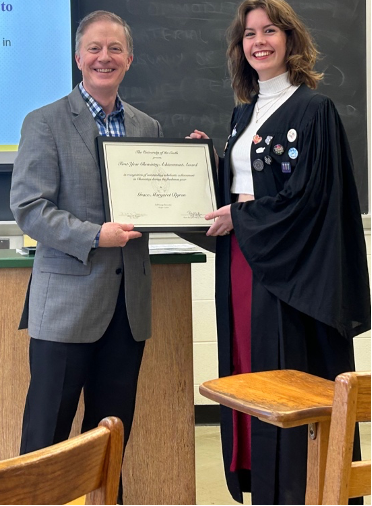
Grace Margaret Byron of Georgia
Louis George Hoff Memorial Scholarship—for attainment in Chemistry
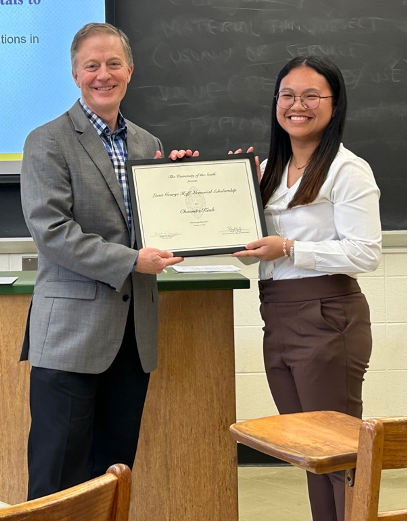
Channita Keuk of Cambodia
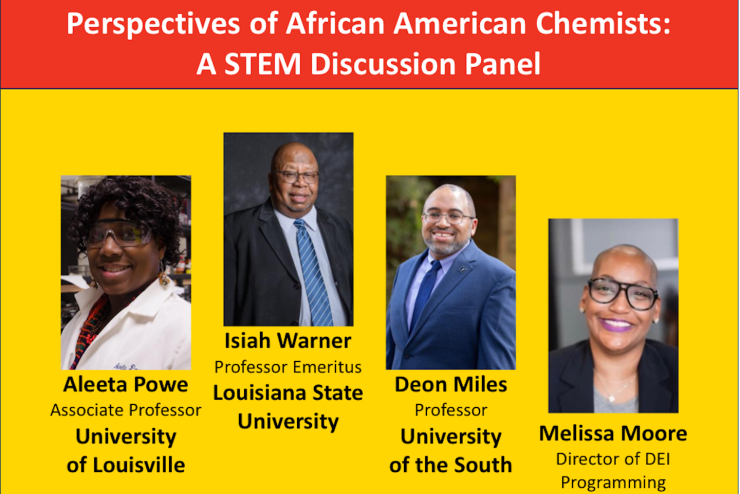
Professor Deon Miles was an invited guest on the panel “The Perspectives of African American
Chemists: A STEM Discussion Panel” at the Kentucky Wesleyan College.
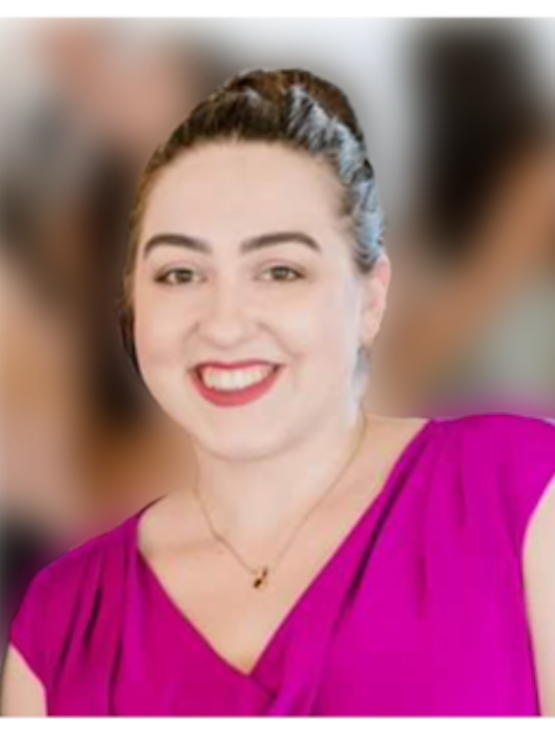
The Department is thrilled to announce that Dr. Alexandra Raeber will be joining the Sewanee community in the Fall of 2024 as an Assistant Professor. Dr. Raeber earned her A.B. in Chemistry from Bryn Mawr College in 2013. She then completed her Ph.D. at the University of Chicago under the direction of Prof. David Mazziotti in 2020. She is currently a Postdoctoral Associate at MIT working with Prof. Troy Van Voorhis. Her research is in computational chemistry focusing on electronic structure for rational design of molecular electrocatalysts for carbon dioxide reduction. She enjoys a variety of fiber arts and trying out new cooking and baking recipes with family and friends.
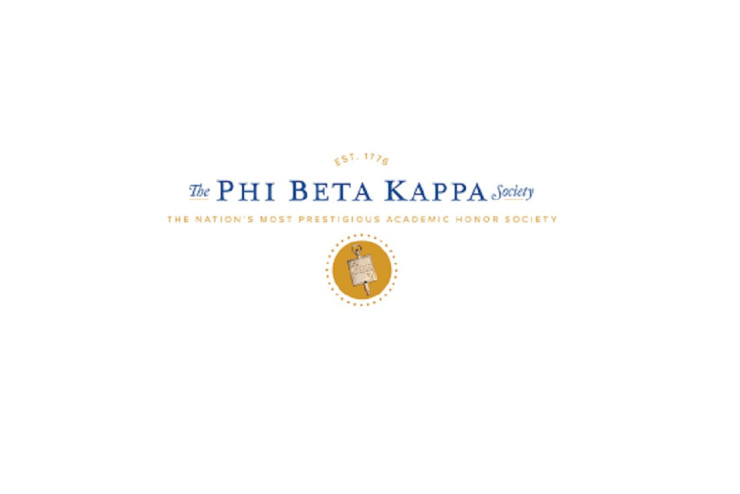
We are so proud of Channita Keuk (Chemistry Major), Patricia Ramirez-Miranda (Chemistry Minor), and Kaiwen Zheng (Biochemistry Major) for their induction into the Phi Beta Kappa Society.
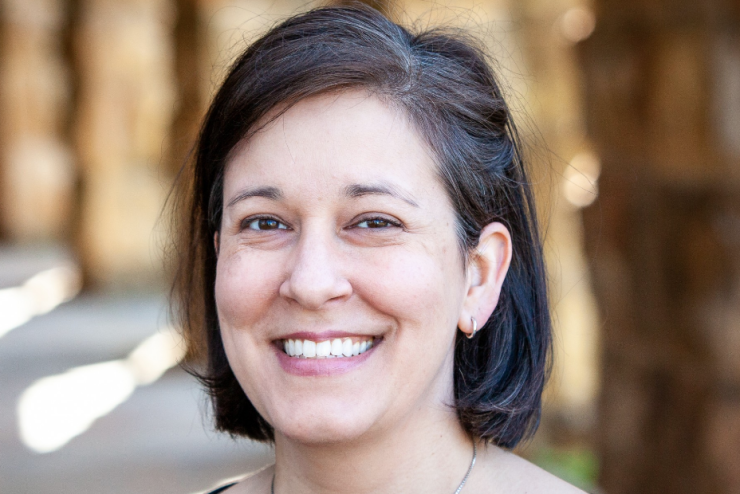
Bethel Seballos, associate professor of Chemistry, was recently named a National Science Foundation ASCEND Faculty Fellow for 2020-2024.
Through the NSF ASCEND (which stands for Advancing STEM Careers by Empowering Network Development) fellowship program, Seballos will participate in an inter-institutional peer mentoring network to foster the retention and advancement of a diverse STEM faculty population.
The NSF ASCEND program is part of a $1 million grant that is being used to create peer mentoring networks of mid-career STEM women faculty and administrator allies across institutions and regions. The collaborative initiative involves nine project leaders, 60 faculty participants and 15 administrator participants from colleges and universities across the Northwest, the Midwest and the Southeast.
Over the next four years, the participants will be engaged in conversations and training opportunities to give them the tools they need to advance their careers. Seballos will attend monthly online meetings, as well as annual regional meetings.
More information about the NSF ASCEND program can be found at the following link: https://wou.edu/ascend/
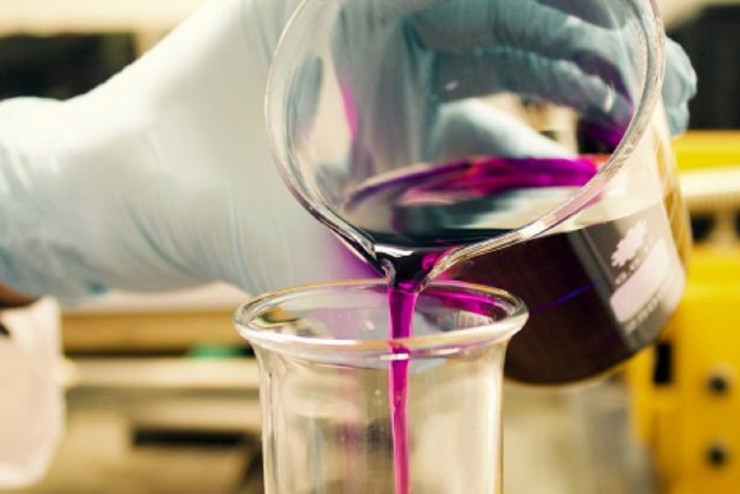
Prof. Deon Miles and Chemistry Laboratory Coordinator Dr. Grady Wells recently wrote an article published in the Journal of Chemical Education entitled “Lab-in-a-Box: A Guide for Remote Laboratory Instruction in an Instrumental Analysis Course”. The article was submitted in response to a call for articles in a special issue entitled “Insights Gained While Teaching Chemistry in the Time of COVID-19”. This paper describes a homemade kit for conducting remote laboratory instruction in the instrumental analysis course. The motivation behind the construction of the kit was in response to the lack of commercially available options for the instrumental analysis course.
The abstract for the article is provided below:
Hands-on learning in a laboratory is an integral part of the undergraduate experience for chemistry students. However, with the onset of the COVID-19 pandemic, an opportunity for this approach was not possible. The pandemic has been forcing instructors to explore the remote setting instead of the laboratory. There are several commercially available kits for remote laboratory instruction in general chemistry, organic chemistry, and biochemistry. Kits provide students with a majority of necessary items to conduct scientific experiments in their homes. Unfortunately, there are no commercially available kit options for laboratory exercises in an instrumental analysis course. Here, we describe a homemade kit that focuses on two important pillars of instrumental analysis: spectroscopy and chromatography. The total cost of the kit is about 700 USD; this amount can be reduced significantly if a “do-it-yourself” spectrometer is employed instead of a commercial model. Details about kit contents and experiments performed are described.